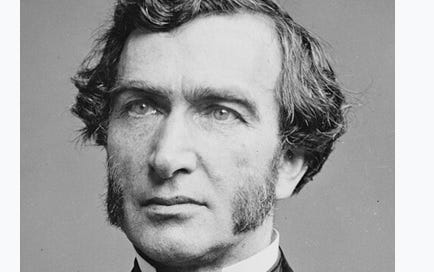Frustrating. Americans want to believe the US “Civil War” was about or was caused by slavery. The narrative has such an uplifting moral appeal, few would contemplate to contest it. Religious people love the narrative. Educated people love the narrative. Yet, the facts do not align well.
When I bring up the topic, many are startled to find I do not accept the narrative. I know the narrative and the arguments so well, but facts cause it to fall apart. So, let me take you through my path to the problems of the narrative.
Often, people will say the four seceding states explicitly mentioned slavery. But, at the time, there were 15 slave states, yet only 7 seceded at first, and only 4 mentioned slavery. The fact most slave states (8) stayed in the Union and only 4 of the 7 seceding states mentioned slavery should cause anyone to question the validity of the argument for secession if the justification was a threat to slavery.
Did the Republicans really pose a serious threat to slavery? No, they merely wanted to prevent it from being brought to new states, as several previous agreements had done. In fact, the Northwest Ordinance, which banned slavery in the territory, happened before the passage of the US Constitution and the Bill of Rights. Compromises were always forthcoming.
From here, the best option is to look at what happened to the Republican Party from 1856 to 1860. After Fremont lost in 1856, the Party wanted success so it added lots of economic ideas from Henry Clay, which included protective tariffs, which broadened support for the Republican Party in the north while it antagonized Southern cotton states. In part, this is lost on many researchers because tariffs are often referred to as duties or excise fees, but mostly because historians do not do much economic research.
Slavery was not just bad, but deadly in places such as Haiti, where sugar cane was harvested with machetes, but not so much in the cotton states. Picking cotton could be difficult, but injuries were not as common, and the servants/slaves had plenty of downtime, and they were well fed. The slave population in the South grew and some slaves were set free.
Yet, cotton, a cash crop, was for export. New Orleans, Charleston, Mobile, Savannah, and Galveston were the largest exporters of cotton. Britain was their largest customer. Yet if the tariffs went up, it meant the cotton ships would have to float back home with fewer goods and pay a higher fee. High tariffs would hurt these great exporting cities. Higher tariffs were what caused the Nullification Crisis, and it is what convinced many in the seceding South: the Republican Party was attempting to destroy the South to end slavery.
Yes, I already know the objections to the the tariff argument as I have read them (https://www.thoughtco.com/morrill-tariff-real-cause-of-the-civil-war-1773719). Republican Justin Smith Morrill of Vermont, with consultation from Henry Clay, introduced the Morrill Tariff Act, and it passed Congress (https://en.wikipedia.org/wiki/Morrill_Tariff) on March 2, 1861, right from the Republican platform.
Before Lincoln’s invastion, the Nullification Crisis happened in 1828, from South Carolina and offered threats of secession. Proposals by Andrew Jackson to raise the tariffs had hit a roadblock from cotton exporters. Henry Clay (https://www.battlefields.org/learn/biographies/henry-clay) had to work on a compromise (https://www.battlefields.org/learn/articles/nullification-crisis) to lower the tariff proposals.
But perhaps the most damning to the slavery narrative comes from President Lincoln himself in his First Inaugural address (https://www.battlefields.org/learn/primary-sources/lincolns-first-inaugural-address).
”In doing this, there needs to be no bloodshed or violence, and there shall be none unless it be forced upon the national authority. The power confided to me will be used to hold, occupy, and possess the property and places belonging to the Government and to collect the duties and imposts; but beyond what may be necessary for these objects, there will be no invasion, no using of force against or among the people anywhere.”
Slavery? “I have no purpose, directly or indirectly, to interfere with the institution of slavery in the States where it exists. I believe I have no lawful right to do so, and I have no inclination to do so.”
Yeah, well, Lincoln screwed that up really well.





